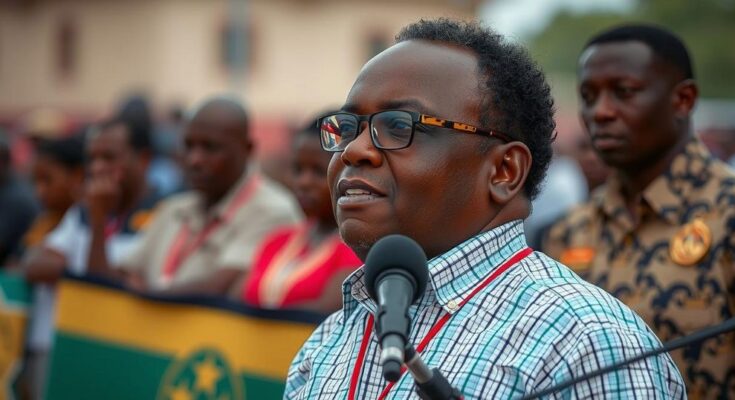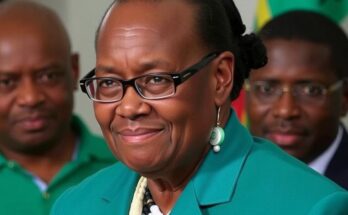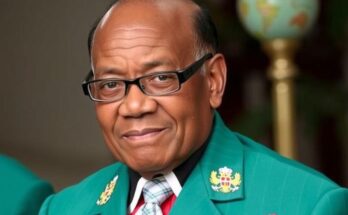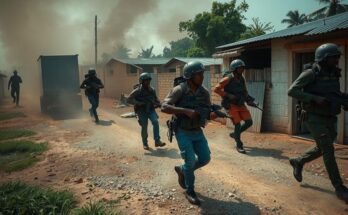Mozambique is facing unrest after the Constitutional Council confirmed Frelimo’s election victory, resulting in at least 21 deaths and numerous injuries. Protests have escalated with claims of electoral rigging, leading to heightened security measures and public dissatisfaction regarding corruption and unemployment. Notable figures, like opposition leader Mondlane, continue to rally their supporters amid increasing violence and unrest.
Mozambique is experiencing severe unrest following the confirmation of the ruling party Frelimo’s victory in disputed elections by the Constitutional Council. Since the court’s decision, which was announced on Monday, at least 21 individuals have reportedly lost their lives, highlighting the escalating violence associated with the protests. This loss includes two police officers, as stated by Interior Minister Pascoal Ronda, who noted that 236 instances of serious violence have been recorded, leading to numerous injuries among both civilians and law enforcement personnel.
The unrest was triggered by Frelimo’s sustained accusations of electoral rigging, particularly surrounding the October 9 elections. Notably, the confirmed winner, Daniel Chapo, has faced significant opposition from supporters of rival candidate Venancio Mondlane. Widespread demonstrations erupted on Monday, with protesters reportedly vandalizing police and public facilities, creating a volatile environment. The protests escalated into acts of arson and roadblocks, with many expressing their dissatisfaction over prolonged issues of corruption and unemployment within the country.
The Mozambican government has responded by increasing security, with 78 arrests made since the protests began and a more pronounced presence of armed forces at critical locations throughout the country. Despite the fervent protests, Frelimo has vehemently denied allegations of electoral fraud. Moreover, Mondlane has urged his followers to prepare for challenging times ahead, indicating that the struggle for justice is far from over.
This ongoing unrest in Mozambique not only highlights significant political tensions but also reflects broader frustrations within the populace over governance issues. The aforementioned violence has prompted human rights organizations to express concerns about the excessive force employed by the security apparatus in curbing dissent, thus emphasizing the delicate balance between maintaining order and respecting civil rights in a democratic society.
In Mozambique, public outrage has been inflamed following the Constitutional Council’s validation of the governing party, Frelimo’s, victory in contentious October elections. Historically marred by allegations of vote-rigging, Frelimo has faced criticism from various sectors of society, including opposition parties and civil rights advocates. The situation escalated sharply as protests emerged, leading to significant civil disorder and ongoing violence that has claimed numerous lives. This unrest is emblematic of deeper societal issues, including endemic corruption and high rates of unemployment, which have fueled public dissent.
In summary, the violence that has erupted in Mozambique following the recent electoral decision underscores significant political discord and public discontent. As the nation grapples with the ramifications of the protests, the emphasis on accountability and reforms becomes increasingly critical. The high casualty count and reports of excessive force used by security officials further complicate the situation, raising urgent questions about the relationship between governance and civil liberties in Mozambique.
Original Source: www.aljazeera.com




